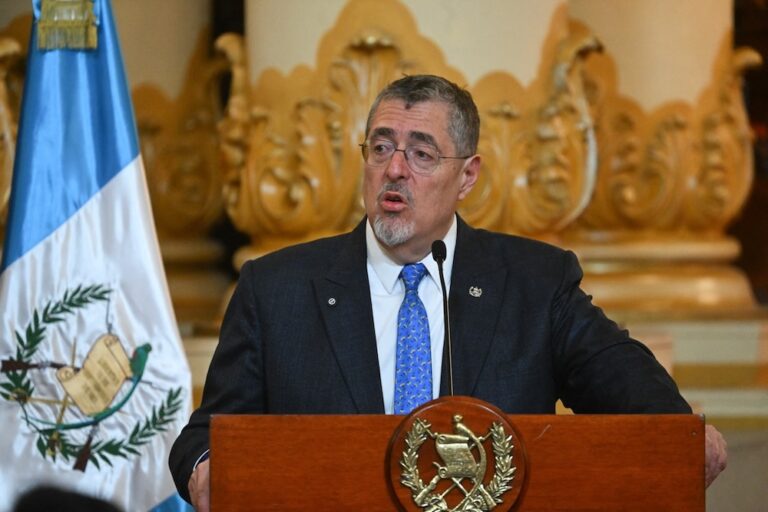(CERIGUA/IFEX) – On 9 April 2008, Telecentro 13 camera operator Eduardo García and María Teresa López Lima, a correspondent for “Prensa Libre” and the Emisoras Unidas radio station, were assaulted while covering a protest by an enraged mob. The incident occurred in the municipality of San Juan Alotenango, Sacatepéquez department, 45 kilometres from the capital. […]
(CERIGUA/IFEX) – On 9 April 2008, Telecentro 13 camera operator Eduardo García and María Teresa López Lima, a correspondent for “Prensa Libre” and the Emisoras Unidas radio station, were assaulted while covering a protest by an enraged mob. The incident occurred in the municipality of San Juan Alotenango, Sacatepéquez department, 45 kilometres from the capital. García was shot in the stomach and had to be taken to hospital.
CERIGUA was able to ascertain that the protest erupted alter the National Police (Policía Nacional Civil, PNC), arrested Sicario Panam, an individual accused of kidnapping and extortion. Angered local residents, who were under the impression that the police were planning to release the accused, wanted to punish him themselves by lynching him. Two people were killed in the resulting melee and a number of individuals were shot, including García.
According to López Lima, a gang of delinquents joined the locals in the protest and was likely behind the violence. The mob prevented the journalist from reporting on the incident and seized some of her equipment. She was assaulted by a group of men as she was trying to hold on to her belongings.
López Lima added that a man who was situated on the second floor of a house near the municipal building was armed with a rifle. Apparently, he fired a number of shots during the protest, resulting in the two deaths. Thus far, the police have not been able to identify him.
Ileana Alamilla, of CERIGUA’s Journalists’ Observatory, expressed concern over this attack on the right to inform and remarked that this time it was not perpetrated by the security forces but by an angered mob.
Alamilla urged the government to ensure that the public is protected and to address the current climate of violence that is plaguing the country and endangering Guatemala’s fragile democracy.


